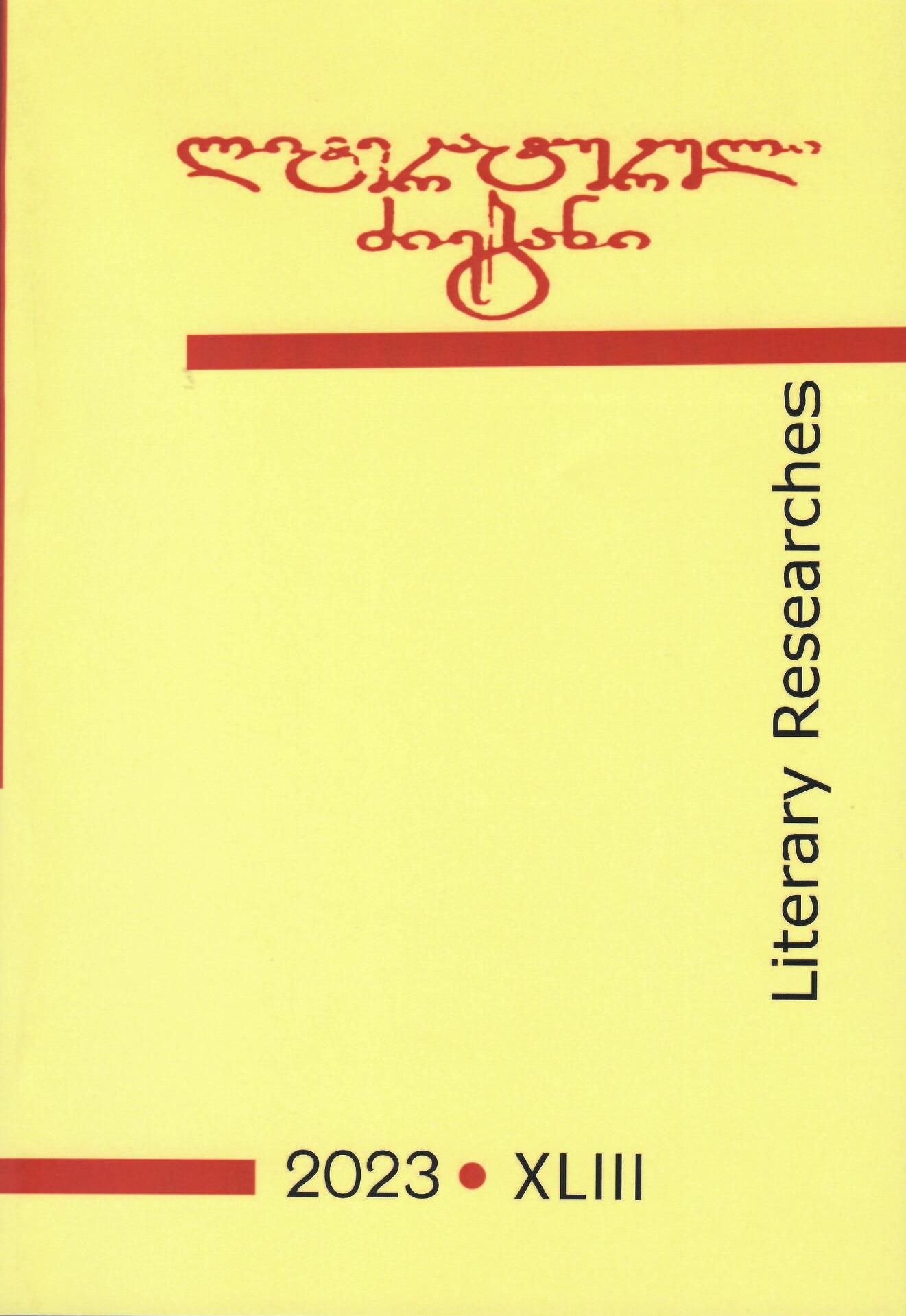Published 2023-12-14
Keywords
- Nikoloz Baratashvili,
- Nikoloz Baratashvili’s political orientation,
- Russia-Georgia relations,
- Georgievsky Treaty,
- conquest of Georgia by the Russian Empire
How to Cite
Abstract
The political orientation and creed of Nikoloz Baratashvili are some of the issues that caused the scientific interest of the researchers of his life and work. They tried and are still trying to find out the attitude of the poet towards such historical events, which are the signing of the 1783 Georgievsky treaty by the Kingdom of Kartli-Kakheti to get the Russian protectorate and its political consequences (loss of the country’s independence, abolition of the royal throne...). This research of scientists is characterized by one feature – when discussing the issue, the poetry by Nikoloz Baratashvili, especially his historical poem “Fate of Kartli” is chosen. As it is known, the characters of this poem – King Erekle and his judge Solomon Lionidze have a heated polemic on the controversial issue of entrusting the fate of the country to Russia and are trying to justify their conflicting attitudes.
Recently, remarkable works of Georgian literary scholars were published, the authors of which (T. Doiashvili, L. Bregadze) consider such attempts to clarify the poet’s political orientation and creed as inappropriate. According to them, the main mistake here was and is the fact that the artistic character of texts chosen for analysis is not taken into account, in particular, the worldview principle of romantic irony, which is characteristic of romantic authors and which is reflected in their prose or poetic texts, is neglected.
We fully share the argumentation and point of view of the abovementioned scholars and consider that the study of Nikoloz Baratashvili’s political creed should be continued in such a way as to distinguish him, on the one hand, as a romantic poet, and on the other hand, as a historical person. In research, we should focus not on his poetry, but on the biographical material that we have mainly as a result of the critical study of the memories of the poet’s contemporaries and other sources, and his epistolary heritage –
nonfiction, which is more reliable for our intended purposes than his poetic works.
The presented article is an attempt to clarify the poet’s political orientation and creed on this basis.

